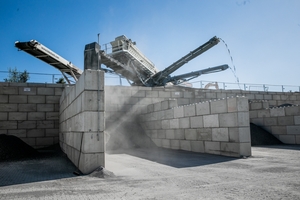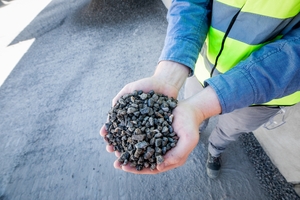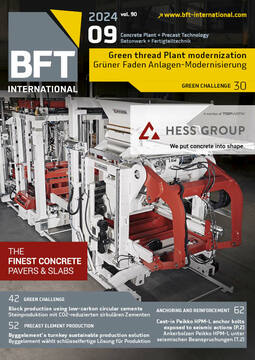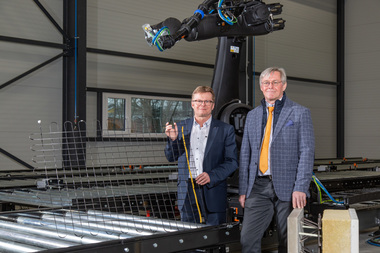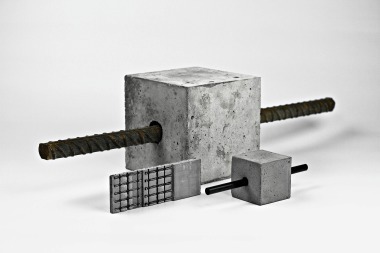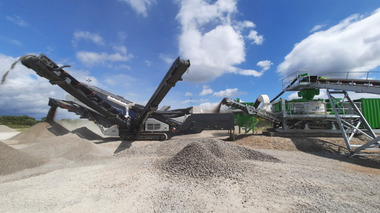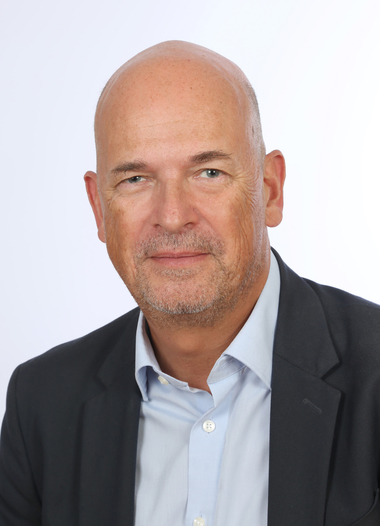Low-carbon concrete through upcycling: „URBAN“ research and promotion project
As an international industry player and driver of innovation, Ehl AG is committed together with its affiliated company CRH to the research of low-carbon materials in the concrete industry. Hence, they are part of an initiative („URBAN“) from economics and science funded by the Federal Ministry for Economic Affairs and Climate Action (BMWK), who are jointly carrying out research on the upcycling of concrete. The project will run until the end of 2025.
Main objectives of „URBAN“ are the reduction of the carbon footprint in the manufacture of concrete products and precast concrete elements by up to 40 % and an associated permanent conservation of natural resources.
„URBAN“ project approach
More than 50 million tons of demolished concrete are crushed in Germany every year. The fine fractions produced in this process are hardly used until today. Therefore, the „URBAN“ project carries out research on a potential use of this waste.
These fine fractions are used in the production of belite clinker that only requires low firing temperatures, thus being more environmentally friendly than the production of conventional cements. In addition, carbon dioxide is separated in this process (2) in a concentrated manner and can be reused – for example, for the carbonation of coarse crushed concrete sand or for carbonation hardening of recycled aggregates (3).
As part of the „URBAN“ project, new mix designs composed of these three elements are tested in order to manufacture an R³ concrete that can be returned to the concrete production cycle. In this regard, the proportion of recycled aggregates is to amount to 50 % for concrete products and 25 % for precast concrete elements.
Challenges of R³ concrete
Belite clinker is a new raw material which had not yet been used adequately for concrete products and precast concrete elements until now. The material‘s properties in terms of building chemistry need to be assessed accurately in the composition with other raw materials.
Recycled aggregates consist of different and varying compositions each as against natural raw materials, and may therefore possibly have an impact on the properties of the finished concrete.
The role of Ehl AG and project partners
Because of the works carried out at Ehl AG, it is possible to test and evaluate the new mix designs in the laboratory at first, with following factory trial.
At the end of the project, successful mix designs will then be used in real production so as to preserve raw material reserves sustainably and to reduce carbon emissions.
Other project partners participating in „URBAN“ are the KIT Institute for Technical Chemistry (ITC), the KIT Institute for Industrial Business Studies and Industrial Production (IIP), the Institute of Building Materials Science (IFB) at Leibniz University Hannover, Holcim Deutschland and Sika Deutschland.


